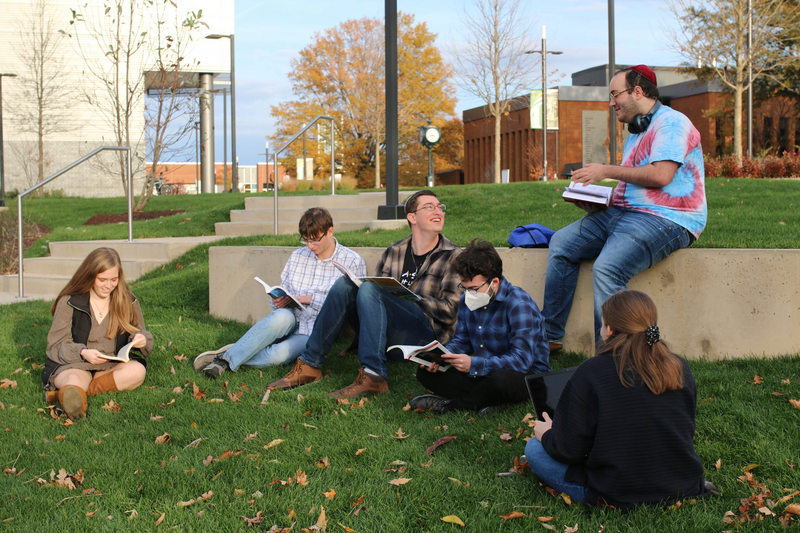How to Pick a College During a Surge of Antisemitism on Campus

Editor’s Note: This article was originally published in Newsweek on February 29, 2024
In just a few weeks, millions of high school seniors and their families will be making choices about where to attend college or university—a decision that will shape their lives for the next four years, and impact them for decades to come. For Jewish students and their families, this year’s selection process will feel much more fraught than usual, given the alarming rise in antisemitism on campus following the Oct. 7 attacks on Israel and the ensuing Israel-Hamas war.
At Hillel International, we’ve recorded a more than 700 percent increase in the number of reported instances of hate speech, vandalism, intimidation, and even physical assault directed at Jewish students, as well as toward Jewish student organizations such as Hillel. And in a recent poll, more than half of Jewish college students say they now feel unwelcome on their campuses, whether in dorms, classrooms, student groups, or just traversing the quad.
Given these challenging conditions, it’s understandable that many prospective Jewish students and their families are factoring in the campus climate for Jewish life more than ever when it comes to selecting a school. However, without the right sources of information, it can be easy for them to badly mis-assess the situation in ways that may unhelpfully narrow their options. In turn, I want to share three pieces of advice for how prospective Jewish students and their families can avoid these pitfalls.
First, and most importantly, avoid labeling schools as “good for” or “bad for” Jewish students. Without question, the climate for Jewish students has become more challenging on a number of campuses this year. Even so, trying to reduce the overall environment for Jewish students at college campuses into lists of schools that are “good” or “bad” for Jewish students inevitably misses the holistic picture of Jewish life at those schools.
A broader and more accurate view factors in the size and diversity of the Jewish student community; the presence of Hillel and other organizations that support Jewish life; the ability for an observant Jewish student to maintain their lifestyle; options for academic coursework in Jewish and Israel studies; the level and intensity of anti-Israel activity on a campus; and much more. Our Hillel College Guide provides this information for more than 900 colleges and universities worldwide. In addition, Hillel staff members are available to speak with prospective students and their families, and to connect them with current Jewish students who can share their lived experiences on campus.
Second, avoid judging a college administration simply by the number of reported antisemitic incidents on its campus. There are many schools that have experienced a spike in antisemitic incidents this academic year; prospective students should focus more on how the university has responded to address the issues. MIT is an important example of how universities can course-correct. After well-publicized, out-of-control anti-Israel protests in the fall accompanied by halting administration responses, the school recently suspended an anti-Israel student organization (the “Coalition Against Apartheid”) that had repeatedly violated clear university policies, in order to ensure safer academic and student life for students there. In fact, a growing number of universities are in the process of strengthening their policies — and just as importantly, enforcement of those policies — to ensure safer and healthier learning environments for Jewish students, while still affording robust opportunities for students to express themselves and their views in classrooms and beyond.
Tulane University is another good example to consider. Tulane was unfortunately the site of a well-publicized physical assault on a Jewish student during an anti-Israel protest that took place adjacent to campus. However, while this assault was truly awful, it was an isolated incident. And if a prospective student drops Tulane from consideration as being “bad for Jewish students,” they would be missing out on a school with one of the highest percentages of Jewish students, one of the most active Hillels in the country, and many other positive contributors to Jewish campus life and experience.
Third, don’t apply a “one-size-fits-all” approach when evaluating a school. Jewish student experiences vary at every college and university. Prospective families should focus on the best fit for their student, based on the student’s particular needs, interests, and ways of engaging in the world. During this incredibly challenging school year, we’ve seen many students leaning into opportunities to confront antisemitism in their communities, and building bridges between Jewish students and other student groups on campus. These student leaders have grown tremendously through their efforts to represent themselves and their Jewish student communities.
No student should ever be subjected to harassment, discrimination, antisemitism, or hate of any kind. And we will continue to work tirelessly to ensure that university administrations do not allow hostile and discriminatory environments for Jewish students to persist on their campuses. But when it comes to selecting a college or university, prospective Jewish students and their families should look beyond the headlines and click-bait rankings and evaluate each campus holistically to help their student find the school that will be best for them, on their Jewish and broader life journeys.
Adam Lehman is president and CEO of Hillel International, the world’s largest Jewish campus organization with a presence on more than 850 campuses around the world.